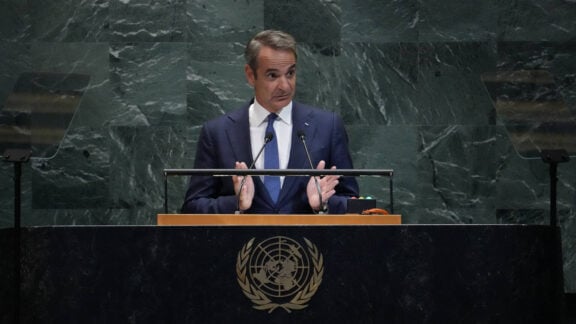The Papandreou government was ill prepared when they signed the memorandum with the EU and as a result of that more problems were created for embattled Greece than those solved, according to recent comments made by the former PASOK leader and former prime minister Costas Simitis from a speech he gave at a conference organised by the Heinrich Böll Foundation and Freïe Universität Berlin this week.
Regarding the crisis, Simitis said “The agreement between the EMU (Economic Monetary Union) and Greece on the policy that must be implemented by Greece in order to be granted all the tranches of the agreed loan, known as the Memorandum, was drawn up without adequate preparation and worked in a manner that exacerbated the situation.
“The authors of the Memorandum failed to link their goals to actual developments. They failed to predict that in the event of a the recession, the time for the materialisation of goals would automatically be extended, or that certain objectives would be discarded. It was a politically fatal mistake. This omission resulted in the continuation of the original harsh austerity plan despite the recession that occurred and thus greatly enhanced the recession’ said Simitis.
The former prime minister argued that, in order to tackle the problems within the EU, “a new way of addressing inequalities between the developed central core of the eurozone and its less developed periphery needs to be set,” predicting that “if this does not happen, then there will be repeated crises in the future.” Finally, he suggested that “the way out of the crisis requires a headlong rush to the direction of economic governance and a political unification. This is the objective that we should be seriously and persistently pursuing.
The Greek problem was not a misfortune in the course of the Union; a deflection that overthrew a well designed project. It was the catalyst that brought the shortcomings of past economic governance to light, as well as the need to redefine it.”








